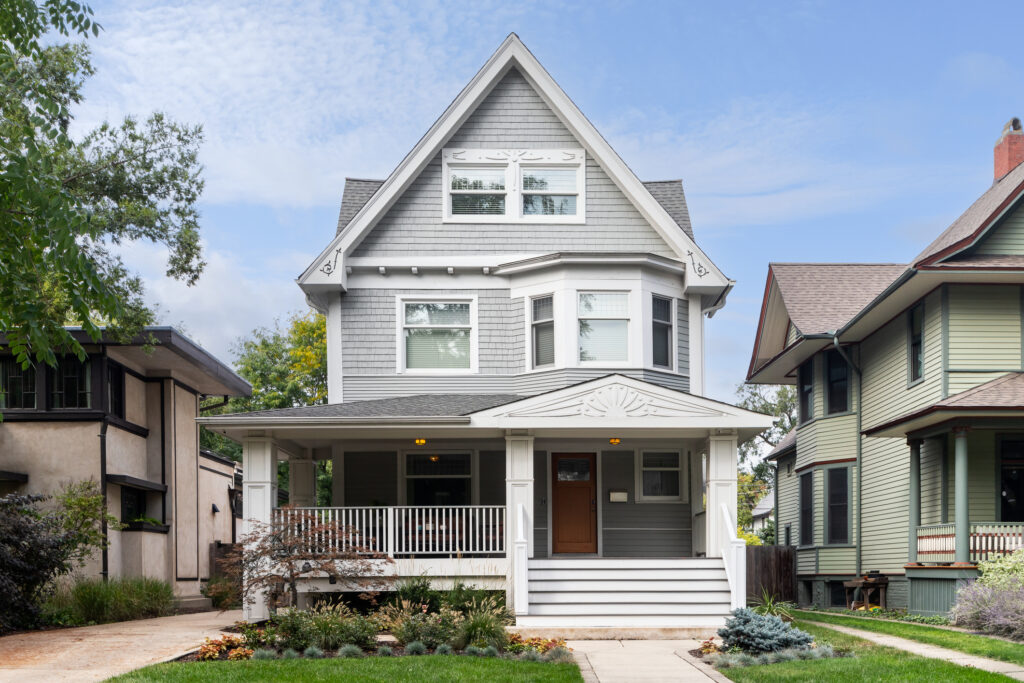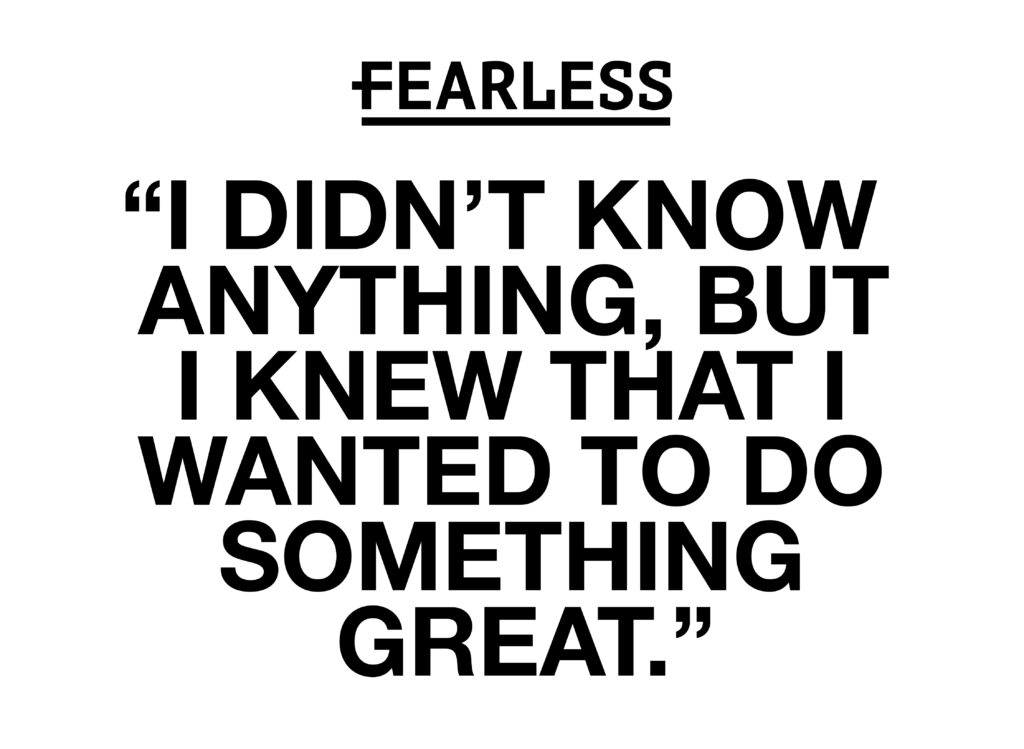Changing the system
Closing the racial inequities in the home lending system

MICHAEL CRUMB Oct 27, 2021 | 8:19 pm
10 min read time
2,430 wordsArts and Culture, Banking and Finance, Business Record Insider
Jeneba Wanjah wants to buy a home to provide a more stable and secure life for her 6-year-old son, Akim. Unfortunately for Wanjah and many others like her, their pathway to homeownership collided with barriers created by a system that they say disproportionately affects immigrants and people of color.
Those barriers, which often focus on credit scores and down payments, can become a workforce issue at a time when Iowa is experiencing stagnant population growth and a shortage in its labor force. If someone can’t buy a home in their community or state, they may leave Iowa and move to a state where buying a home may be easier, experts say.
Wanjah, 26, immigrated to the United States as a refugee from war-ravaged Sierra Leone when she was 10 years old in 2005. After growing up in foster care she is now a single mom, taking classes at Des Moines Area Community College. She is working at Iowa Legal Aid as part of the Americorps program, and wants to go to law school someday and become an attorney who helps survivors of domestic violence. Her other dream? To be a homeowner.
“It will mean having a safe, stable environment for my child,” she said.
The barriers to homeownership
At the root of the issue is a lack of access to wages and resources that allow people to reach their goal of owning a home, said Amal Barre, vice president of planning and strategy at Oakridge Neighborhood Services, which provides a wide array of services to support and engage residents.
“Data shows us again and again that communities of color have less access to living wages and an income that allows them to manage housing stability. … And immigrant and refugee communities are disproportionately impacted by that because they’re starting a new life in a new community without any of the resources they had access to in their old country,” Barre said.
According to the Directors Council’s One Economy Blueprint for Action, 69.3% of Black residents in Polk County rent their homes, compared with 32.9% of the general population. The median earnings for Black residents in Polk County are just over $24,600, compared with a little more than $36,700 for the whole county.
The report from 2020 showed 22.1% of Black Des Moines residents are unbanked, or don’t have a relationship with a bank or credit union, compared with the statewide average of 3%, and from 2014 to 2017, Black residents in Polk County were denied loan applications at a rate of 24.15%, compared with the overall denial rate of 10.94%. During that period, only 1.6% of all home mortgages in the Des Moines and West Des Moines area were made to Black applicants, the report showed.
Barre said all too often people of color and those in the refugee community don’t get paid enough, even working full time, to afford everything their family needs, far less save for a home.
“If you can’t save, you can’t think and dream of homeownership, or doing things for yourself or for your family,” she said.
The change that is needed will require the community to undergo some self-reflection, she said.
“I think we really need to be intentional and open to asking ourselves the critical question of: Do we have an economic infrastructure to be able to ensure that our community members have what they need to thrive?” she said.
Other pieces of the puzzle are financial rights and literacy education, workers’ rights, and what resources can be tapped into when a crisis occurs, Barre said.
Another piece is access to culturally appropriate programming to address issues, such as language barriers among refugees, that “will help them transition and understand the cultural differences and nuances of their new communities,” she said.
Changing the system, not the applicant
Work is underway, nationally and locally, to examine the home financing system to determine what inequities and challenges exist that create a “glaring disparity” between white potential homeowners and potential homeowners of color, said Eric Burmeister, executive director of the Polk County Housing Trust Fund.
The trust is the chief planning, advocacy and funding organization for affordable housing in Polk County and is responsible for crafting the strategic plan for affordable housing.
“There’s work going on to pull apart the various pieces of the system,” Burmeister said. “Is it our credit scoring system that’s creating the most problems? Is it credit history? Is it the down payment requirements? I think as we start to look at each of those components individually as opposed to the whole, we learn which parts are most problematic.”
Burmeister said instead of just saying a lot of potential homeowners of color don’t qualify, the question needs to be asked, why don’t they qualify?
“Do we tackle this inequity by changing the system, or by trying to change the applicant?” he said.
One issue that needs to be addressed is existing debt, Burmeister said.
A project done last summer by an intern for the Polk County Housing Trust Fund looked at over 300 applicants for Habitat for Humanity’s program. It found that credit history and existing debt were the primary disqualifying factors for people of color, Burmeister said.
“If that is true, then what do we need to do as a community, or what does the mortgage lending industry need to do to change its underwriting requirements to include more applicants of color falling into the acceptance pool as opposed to the decline pool?” he said.
Burmeister said people of color generally have higher debt-to-income ratios because they tend to own a car, which is generally the second-most expensive asset bought on credit. And because people of color tend to earn less, that debt is a higher percentage of their overall income.
“That is skewing the debt-income ratio to the point where they don’t qualify,” he said.
That raises the question about what is and isn’t included when considering debt-to-income ratio, Burmeister said.
“So, do we say, should auto debt, either part of it or all it, be included, or none of it?” he said. “We do know by including it, you disproportionately deny mortgages to minority applicants.”
Changing the system won’t be easy because on the federal level, Fannie Mae and Freddie Mac (the entities created by Congress to provide liquidity, stability and affordability to the mortgage market) dictate the underwriting standards used by banks and credit unions, said Burmeister, who practiced real estate law for 30 years before taking the helm at the Polk County Housing Trust Fund.
Overcoming barriers
Tony Montgomery, executive director of Des Moines-based Home Inc., said one of the biggest challenges his organization sees is a lack of down payment money and a lack of access to credit.
Home Inc., a nonprofit affordable housing organization, provides counseling and education to help people become successful homebuyers, renters and landlords, and develops, builds and rehabilitates homes to create affordable housing.
Montgomery said most of the people his organization works with are low-income and don’t have down payments for a mortgage. They also may have poor credit or don’t have an established credit history because they don’t have a relationship with a bank, he said.
For those who suggest that people who are denied a mortgage should work harder, make more money and save more money, Montgomery said that’s not always the answer.
“That is the ideal solution, but not everyone has access to the tools to do that,” he said. “That is an idealist response … but that’s not always possible. Unfortunately, for some of these things, it becomes a barrier. Poor credit can be more like a scarlet letter for people.”
Montgomery said changes need to be made to address issues which are often systemic and have led to the racial gap, where people of color are 2.6% more likely to be rejected for a mortgage than their white counterparts.
He advocated for including rental history in the mortgage underwriting process, a concept recently floated by the federal Housing Finance Authority, which regulates Fannie Mae and Freddie Mac.
“That’s not currently part of traditional credit, so many banks don’t take that into consideration, Montgomery said. “If I paid my rent on time for two years and was never late, they don’t take that into consideration. It’s not factored into your credit score. Changing our approach to how we evaluate creditworthiness at the system level is part of the solution.”
So is understanding the causes of poor credit, he said.
“Let’s look at those things as opposed to trying to get all borrowers to just fix the things that are barriers,” Montgomery said.
Creating access to education about the homebuying process is also a key factor, he said.
“It can be very complicated,” he said. “It’s difficult for people who have been generational renters or those who are refugees, who are people that English is a second language.”
Education can also provide them the skills needed to make sound financial decisions and avoid predatory lenders, Montgomery said.
The community also needs to expand access to affordable housing and down payment assistance programs, Montgomery said.
“It’s thinking differently about the homebuying process,” he said.
The workforce connection
Finding solutions to racial inequities in the housing system can be critical as the state works to solve its labor shortage, said Almardi Abdalla, vice president of family and workforce programs at Oakridge Neighborhood Services.
And it will be incumbent on the business community to be part of that conversation, he said.
One issue, Abdalla said, is that traditional lending practices discourage Muslims from borrowing money because paying interest is forbidden under Islamic law.
Because accomodations aren’t made by traditional lenders, otherwise qualified applicants will find it nearly impossible to buy a home in Iowa, he said.
That means that those individuals may leave Iowa for other states where programs to accommodate them are available, Abdalla said.
“That’s the barrier, and we need to break that cycle,” Abdalla said.
To prevent Iowa from losing some of its top talent to other states, change is needed, he said.
“This will not only make Iowa more attractive to immigrants, but also it’s a great way to retain immigrants in our state,” Abdalla said.
Abdalla said his goal is to raise awareness at all levels and engage the community in the search for solutions that will help Muslim immigrants settle in the community and buy a home.
He said he has talked with banks and credit unions, and most have responded that they didn’t know about the issue.
“You always get this ‘aha’ moment when you’re talking about this issue,” Abdalla said.
Jennifer Cooper, vice president and manager of commercial real estate at Bankers Trust Co., acknowledged that the lending system is not set up to accommodate interest-free loans.
Abdalla said Iowa’s economy could be made stronger if it could keep immigrants in the state by making the pathway to homeownership easier.
“These are fellow citizens who are hardworking who would like to make Iowa home,” he said. “They are graduating college, and they are our future employees, staff and leaders of our communities. Having more homeowners in our state, it’s a win-win for all of us.”
Abdalla encouraged businesses to get involved and create programs to help immigrant employees overcome those barriers to homeownership.
“In this economy right now we have a shortage in the labor market … so businesses must be creative and they must be ahead of the curve, and I think homeownership should be something they look at,” he said.
Burmeister said the business community needs to understand the urgency of doing something to help people become homeowners.
“Unless we start as a community using our financial resources to mitigate these past inequities, it doesn’t really mean much,” he said. “We need the business community, and I mean the banks, credit unions, our big mortgage companies, to come together to create a big pool of down payment assistance money that can be distributed to folks of color. It will be complicated to set up so that you don’t violate fair lending rules, but it can be done.”
He said homeownership can lead to intergenerational wealth, which all too often escapes people of color and immigrants who can become perpetual renters because they are shut out of the homebuying market.
“Getting someone started on the path to homeownership, for the community it’s seed money, you only have to do that once,” Burmeister said. “That gets a family started on homeownership and starts to build that wealth that then passes down and multiplies generation by generation.”
The dream
For Wanjah, the single mom who aspires to be an attorney, becoming a homeowner would be the realization of the dream she had when she came to the United States as a child.
It would mean a better life for her son than she had growing up, said Wanjah, who tearfully recalled her own father and grandparents being killed in the war in her home country.
Wanjah and her son now rent an apartment in the Oakridge Neighborhood, which she describes as a better environment for her son than the apartment complex where they lived previously.
She has applied to some housing programs, only to be rejected because of credit issues, Wanjah said.
“All I experienced throughout my childhood was war and tragedy,” she said. “I came to America thinking it was heaven. I don’t want to imagine being discriminated against and not having the better life that I want. It’s hard enough to get used to the system here. They should consider some of us who are not used to the American system, and it’s going to take that support and encouragement … especially for those of us who don’t have family here. If we don’t get that, it’s going to be even more traumatizing on us.”
Wanjah said it’s her dream to give her son a better life and she hopes that she can put her past behind her and that someone will give her a chance as she looks to a better future.
“As a single mom I would do anything to see that my son has a better life, and me trying to get a home, it’s not just for my benefit, but for the benefit of the young one that I’m raising, because I don’t want that child to have to experience what I’ve experienced,” she said. “Things happen in life. We cannot change what happens, but what can change is that support system that can help that person rise from what they’re falling away from.”











